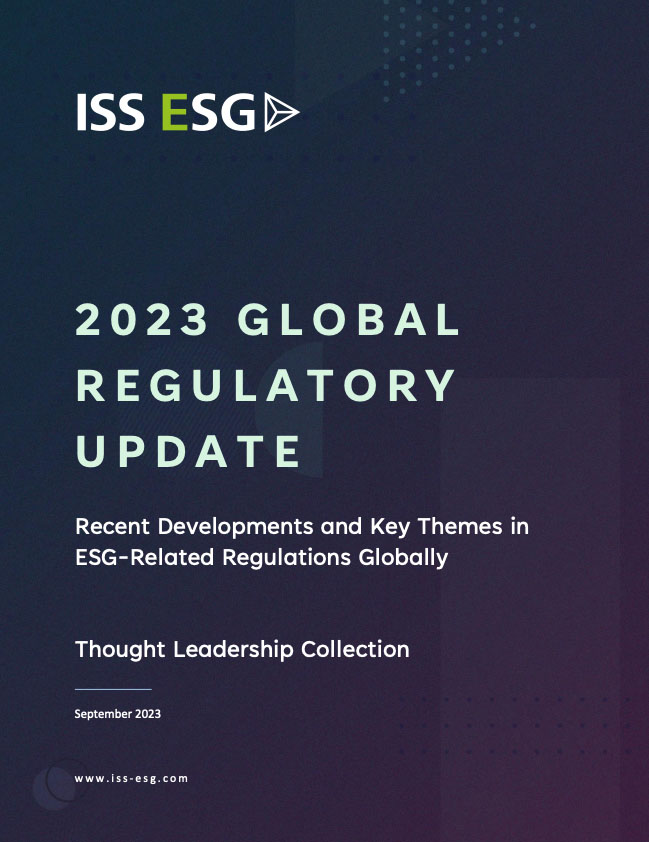
2023 Global Regulatory Update: Recent Developments and Key Themes in ESG-Related Regulations Globally
September 21, 2023
- Two major sustainability reporting standards were finalized in 2023: the latest update to the European Commission’s European Sustainability Reporting Standards and the Sustainability Disclosure Standards of the International Sustainability Standards Board. Although the two standards are interoperable to an extent, differences in areas such as the definition of materiality or the application of material assessment could considerably reduce their comparability across companies.
- Regulators are seeking, through investment product disclosures, naming rules, and classifications, to elicit more meaningful disclosure and support retail investors in navigating the growing market of sustainable investment products. However, naming, labelling, and reporting regimes still leave room for interpretation on which investment products qualify as sustainable. A survey of regulations in the European Union, the United Kingdom, the United States, Canada, Australia, Hong Kong, Singapore, and Japan indicates that navigating the emerging regimes will remain a challenge for the foreseeable future.
- Regulation to promote corporate due diligence on human rights and environmental impacts has become more ambitious in its goals, scope, and enforcement. In some markets, policymakers are pursuing such regulation as a way to supplement existing disclosure-based regimes. The EU Corporate Sustainability Due Diligence Directive, currently in negotiations, applies to companies based within and outside the EU, for example. The U.S. Securities and Exchange Commission is monitoring discrepancies between companies’ public sustainability disclosures and those in their SEC filings, while the U.S. Congress is contemplating corporate due diligence obligations related to supply chains and human rights.
- The U.K. is pursuing a different regulation path from the EU, which may involve less expansive sustainability-related corporate reporting. A U.K. taxonomy framework currently under development may similarly be more flexible for companies reporting against it than the EU taxonomy. Meanwhile, the U.K. is one of the first major capital markets to base its sustainability disclosure standards on those of the International Sustainability Standards Board.
- The sustainable bond market reportedly has exceeded $4 trillion in issuances since the late 2000s and continues to be one of the main instruments to mobilize funds for environmental and social objectives. The International Capital Market Association principles for labelled debt instruments have influenced bond market regulation in China, India, and Japan, while the EU is following a more challenging approach. Current regulation tends to focus on green bonds.



